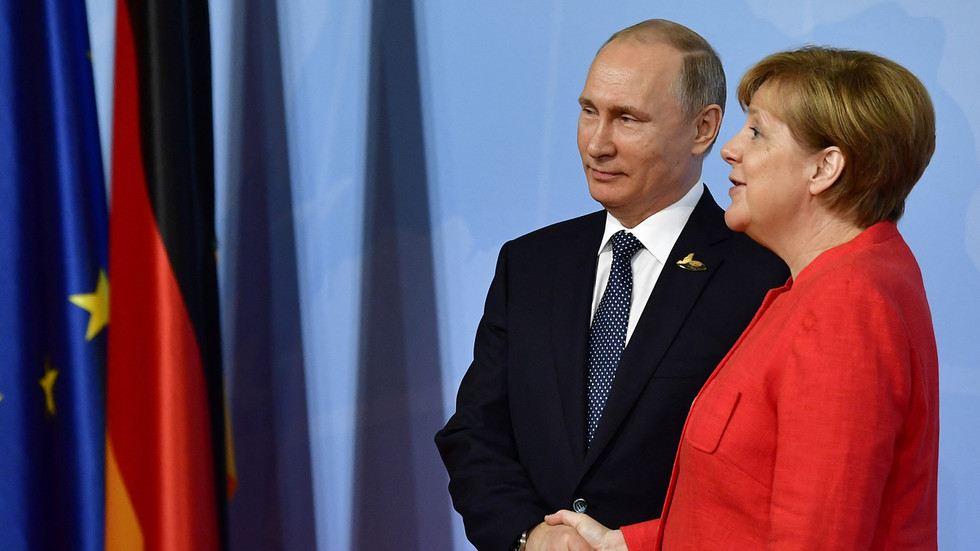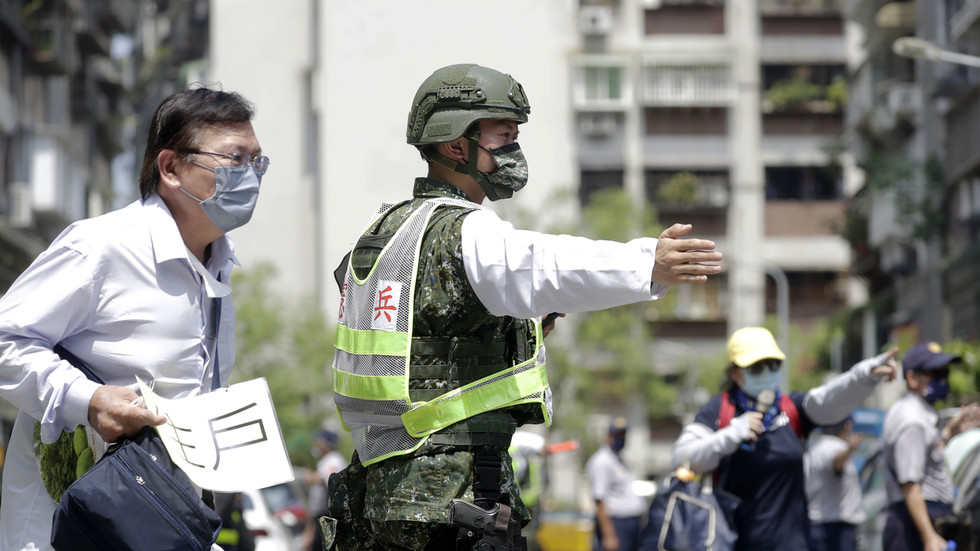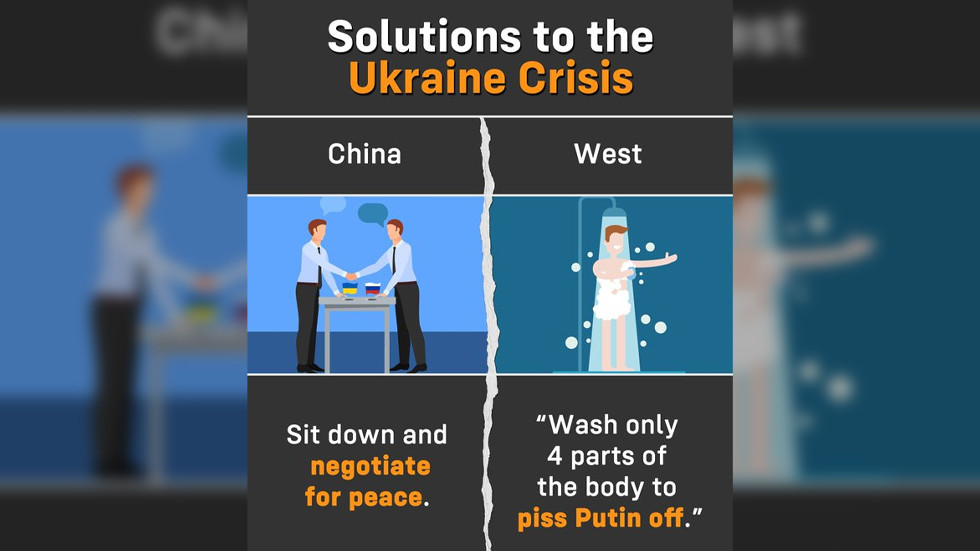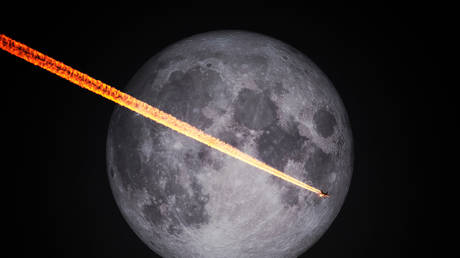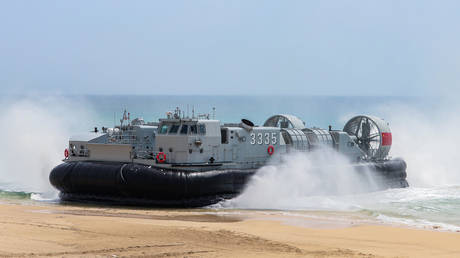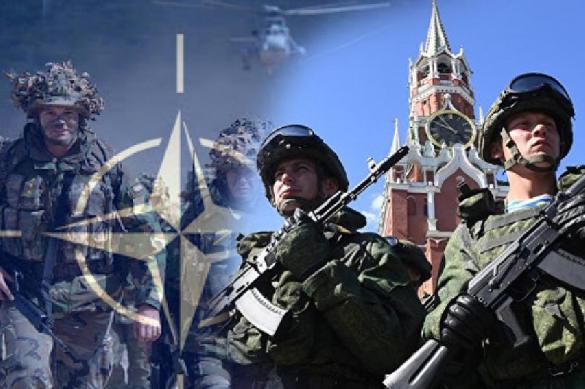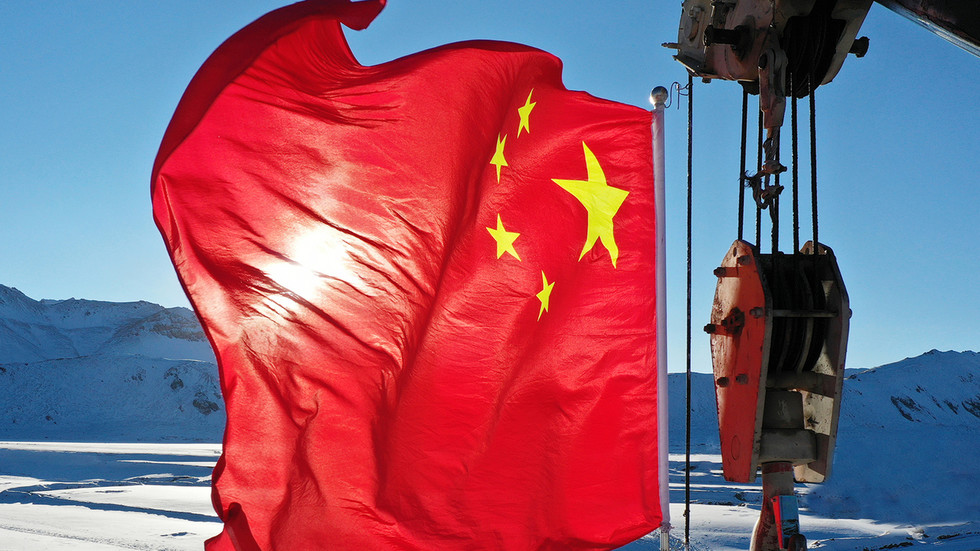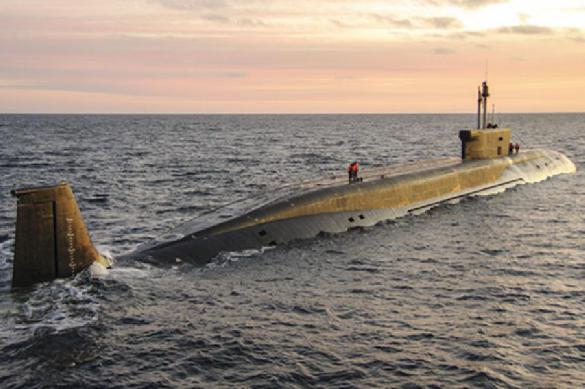[ad_1]
It’s turning into more and more clear that the Germans cannot escape historical past. Placing apart Berlin’s finely tuned coalition deal and attraction for unity, Chancellor Angela Merkel’s successors are unable to cover their variations.
Whereas there are any variety of pitfalls that would see the delicate settlement strained, this time the strain is coming from the East. Russian President Vladimir Putin’s current military-diplomatic push to propel the West out of its unilateral complacency and into new safety negotiations is aimed most of all on the USA and NATO as an entire.
Nonetheless, its results on Germany are substantial, too: Towards the background of an ongoing gasoline provide disaster that factors to deepening de facto dependency on Russia and unresolved issues within the German power transition technique, Moscow’s strain is rupturing the fault traces inside Berlin’s coalition – particularly between the Social Democrats, led by Chancellor Olaf Scholz, and the Greens with, amongst others, the Ministry of Overseas Affairs underneath Annalena Baerbock.
It’s true that in precept – that’s, so far as rhetoric goes – everybody within the German authorities agrees on some type of two-track technique towards Moscow, combining circumstances and sanctions on one aspect, and negotiations and cooperation on the opposite; in Baerbock’s phrasing, “dialogue and toughness.”
However in actuality, this widespread denominator is so small and ill-defined that it’s virtually irrelevant with regards to particular insurance policies and selections. At that stage, what issues are the variations in emphasis: on toughness with Baerbock, on dialogue with Scholz.
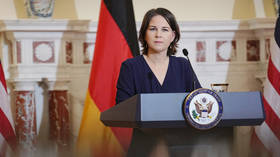
This divergence has been highlighted over the past week or so: First, there have been rumors within the German yellow press that the chancellor was searching for a contemporary begin with Russia, a form of German reset Sonderweg. This has not been confirmed. However there appears to be one thing to the story; on the very least, it’s believable that Scholz is searching for to make German overseas coverage a ‘Chefsache‘ – that’s, an space formed and managed by the chancellor, with the overseas minister in a consulting and implementing position solely. If that’s the case, he has a lot precedent and the structure on his aspect: the precept of ‘Richtlinienkompetenz’ – the authority to outline key instructions – signifies that a chancellor can declare supremacy over any area of coverage. To what actual diploma she or he could make that declare prevail, nonetheless, is one other matter.
On the identical time, a brief go to to Washington by Baerbock has introduced out her emphasis on firmness towards – and, actually, confrontation with – Russia. Extra disturbingly from Scholz’s perspective, it has signaled the truth that with reference to the contentious Nord Stream 2 pipeline, the stolidly ‘Atlanticist’ German Greens see eye to eye with the US institution, however not a lot with the German chancellor. Whereas Scholz understands the pipeline as a enterprise venture, Baerbock demonstratively asserted its geopolitical significance.
In the meantime, an unnamed Washington official leaked some wrist-slapping criticism of the chancellor as delicate on Russia, by way of Germany’s obliging liberal-conservative newspaper of report, the Frankfurter Allgemeine Zeitung. Scholz is a cerebral sort from Germany’s frosty North, nevertheless it should nonetheless really feel a tad awkward to see conveniently nameless People use the event of his overseas minister’s go to to rebuke him earlier than the German public.
READ MORE:
Russia guarantees retaliation for Germany’s ‘unfriendly step’
None of that is sensational: German coalitions may be scrappy, and American diplomacy is flatfooted on a very good day. But two issues are price a more in-depth look. First, Berlin’s overseas coverage coalition bother has emerged remarkably rapidly, catalyzed by Moscow’s strikes over the past month. Thus, no matter else occurs, Moscow’s check has already demonstrated one factor: Esprit de corps and self-discipline amongst Germany’s new rulers are inadequate. On the first average outdoors strain, extensively suspected rifts have develop into unprofessionally obvious. That’s particularly embarrassing, because the new coalition set out with cocky claims to do higher.
Second, there’s a deeper, historic dimension. If we undertake an extended perspective, this second is a part of an inevitable, if unpredictable, strategy of recalibration. Right here’s why:
Between (on the newest) the primary unification of Germany in 1871 and the nation’s complete defeat in 1945, the connection between Germany and Russia was essential, for higher and worse, to European and international peace and struggle. Then, in the course of the quick half-century of the Chilly Battle, this logic was subordinate to the competition between Washington and Moscow.
Subsequently, over the past third of a century, 4 key issues have modified, and one has not: First, on the initiative of Moscow and, with the enlightened (if egocentric) consent of Washington, the Chilly Battle resulted in a compromise closely favoring the West. Second, towards this background West Germany absorbed the previous East Germany in one other unification, whereas remaining underneath American hegemony.
Third, unable to flee the acute disaster triggered by well-meant however jumbled reforms from above, the Soviet Union imploded, and an more and more assertive and highly effective – that’s, traditionally regular – Russia has emerged from its ruins. Fourth, challenged by rising multipolarity and unable to provoke any critical reforms, from above or beneath, the USA has entered a interval of decline. It could be transitory or terminal. It definitely has not been reversed. Maybe America might be again sooner or later, however that day has not but come. Lastly, the one factor that has not modified: China remains to be rising.
In that post-post-Chilly Battle world, Germany has but to seek out its place. It takes no undue nostalgia to grasp that, since from a historic perspective it’s – fairly actually – again, one key a part of discovering its place is redefining its relationship with Russia, one other nation that can be – once more, fairly actually – again. Whereas too many Western observers are obsessive about particular politicians, occasions, and crises, it’s this tectonic shift that also must be labored out.
The issue in Berlin is that nobody appears to need to achieve this. In essence, some, like Baerbock and the Greens, cling to an invocation of very selectively utilized ‘values’, and to 2 misguided expectations: that Russia should change to develop into extra like ‘us’, and that America will, finally, straighten out. Others, like Scholz and the SPD, explicitly supply a rehashed ‘Ostpolitik’ of cooperation with Russia, which additionally typically comes with flimsy guarantees to make Russia extra like us.
Whereas the ‘worth’ adherents – let’s name them Baerbockians – get to take pleasure in their very own moralistic rhetoric, the representatives of ‘Ostpolitik’ reloaded – or Scholzians – can delight themselves on being extra boringly constructive. But each camps badly lack perspective: The Scholzians don’t have any credible objective besides pragmatically sustaining the peace, and ideally making some earnings as nicely. Whereas that simply beats the dangerous illusions of the Baerbockians, this pragmatism suffers enormously from the truth that its outcomes are taken without any consideration so long as they final. But one of the best that may be mentioned for the Baerbockians is that they imply nicely and fulfill public wants for a little bit of collective self-righteousness.
What’s lacking is a real rethink to beat this flawed and drained various. The outcomes of such a rethink are, naturally, not predictable. In reality, it isn’t sure that it’ll ever happen. But when it does, it must lastly think about a minimum of three information: First, Germany’s – and Europe’s – anomalous dependence on the USA made sense prior to now however has ceased to take action. Fruitful cooperation would now presuppose constructing actual European autonomy. Second, Russia is already a considerable energy once more. So long as that continues to be a reality, the one cheap path to lasting safety in Eurasia includes calm politics of give-and-take, and never pressure-until-you-yield or longshot bets on regime change. Lastly, safety coverage should develop into robustly agnostic relating to ideology. This can be a level that the rationalist Scholz a minimum of has already acknowledged, acknowledging the necessity for international cooperation “together with with governments which are fully completely different from ours.” A Chilly Battle, largely bipolar world might – barely – afford obstinate struggles over who had the higher ‘values’. The rising multipolar world – crowded, sizzling, and confused – will hardly deal with negotiating separate pursuits and shared survival.
The statements, views and opinions expressed on this column are solely these of the writer and don’t essentially symbolize these of RT.
[ad_2]
Source link

